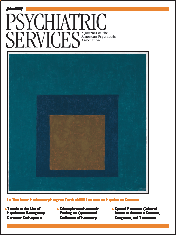In Reply
In Reply: I thank Dr. Kramer for his kind remarks about my review. He correctly notes that my discussion of drugs used for treating insomnia focused on their effects on sleep laboratory measures, although I pointed out that such measures may not accurately represent the clinical syndrome of insomnia. Nevertheless, the ability of a hypnotic drug to improve objectively measured sleep parameters, such as latency to sleep onset, waking time after sleep onset, sleep efficiency, and total sleep time, is commonly accepted as demonstration of efficacy; it is unlikely that a drug would receive approval by the Food and Drug Administration for use as a hypnotic if it did not improve polysomnographic measures of sleep. Therefore, I based my comparisons on the objective measures. As I stated in my review, further research is needed to understand the specific "sleep abnormalities that contribute to the clinical entity of insomnia," and assessment of hypnotic efficacy must go beyond traditional sleep measures.
As for Dr. Kramer's concern that I did not address the issue that sleeping pills might decrease longevity, I am somewhat confused by Dr. Kramer's statement that both he and Dr. Kripke had clearly agreed on this point. In his paper Dr. Kramer (1) stated that "problems such as an increase in death rates … have been reported in those using sleeping pills regularly, but not in all studies, and none of which were prospective in nature." In his report of a possible association between sleeping pill use and mortality, Dr. Kripke (2) stated that his study "did not associate this mild mortality risk with particular hypnotic compounds or prove causality." Available hypnotics at the time of Dr. Kripke's study included not only benzodiazepines but also older, more toxic agents, such as barbiturates and meprobamate. Moreover, any prescription compound that a research participant believed was being taken for sleep, including off-label use of other classes of drugs, could have contributed to the findings. Given the limitations of data on the impact of specific hypnotic drugs on longevity, I elected not to include a discussion in my review.
Finally, although I did not review clinical case reports or case series, Dr. Kramer's clinical experiences (3) provide further support for the long-term use of hypnotics in chronic insomnia. As I stated in my review, one of the barriers to treating chronic insomnia has been the general lack of long-term, placebo-controlled studies of hypnotics.
I strongly agree with Dr. Kramer that prospective, long-term outcome studies of hypnotics are needed to assess their risks as well as their efficacy. Without these data, the true benefits and risks of insomnia treatments—both pharmacologic and behavioral—remain a matter of conjecture.
1. Kramer M: Non nocere: but we both care. Sleep Medicine Reviews 4:547–549,2000Crossref, Google Scholar
2. Kripke DF, Garfinkel L, Wingard DL, et al: Mortality associated with sleep duration and insomnia. Archives of General Psychiatry 59:131–136,2002Crossref, Medline, Google Scholar
3. Kramer M: Hypnotic medication in the treatment of chronic insomnia: non nocere! Doesn't anyone care? Sleep Medicine Reviews 4:529–541,2000Google Scholar



